The event was organized within the framework of a signed Memorandum of Cooperation.
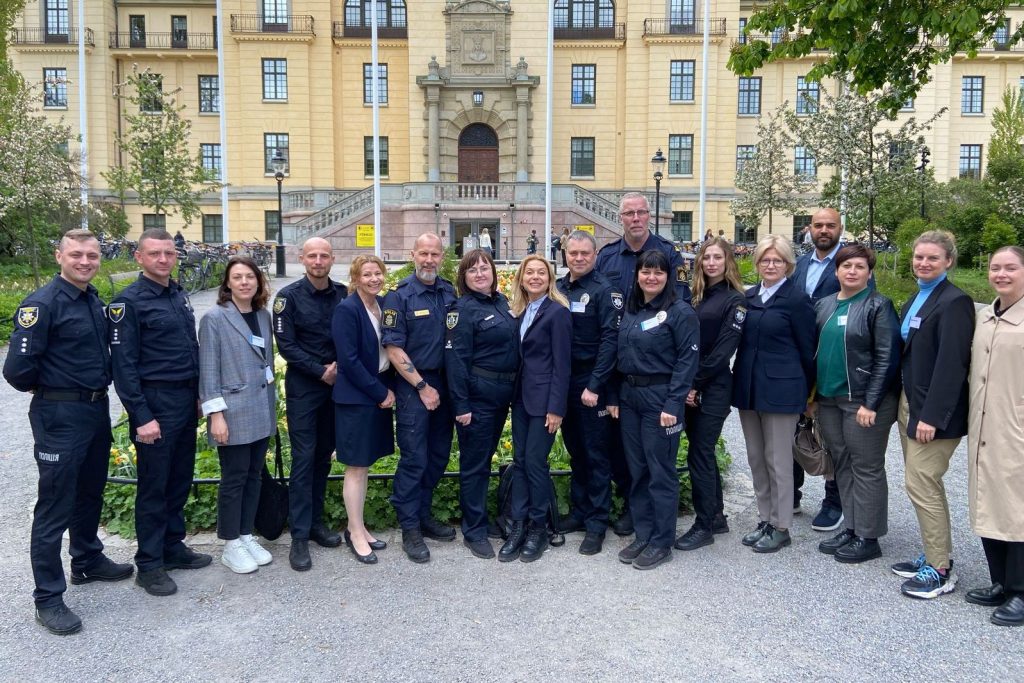
The purpose of the visit to Stockholm was to present to Swedish colleagues the developments made by the DSUIA project team on the interdisciplinary course “Community Safety in the Conditions of Martial Law,” and to exchange experience and best practices in the field of community safety between police officers and educators from Ukraine and Sweden.
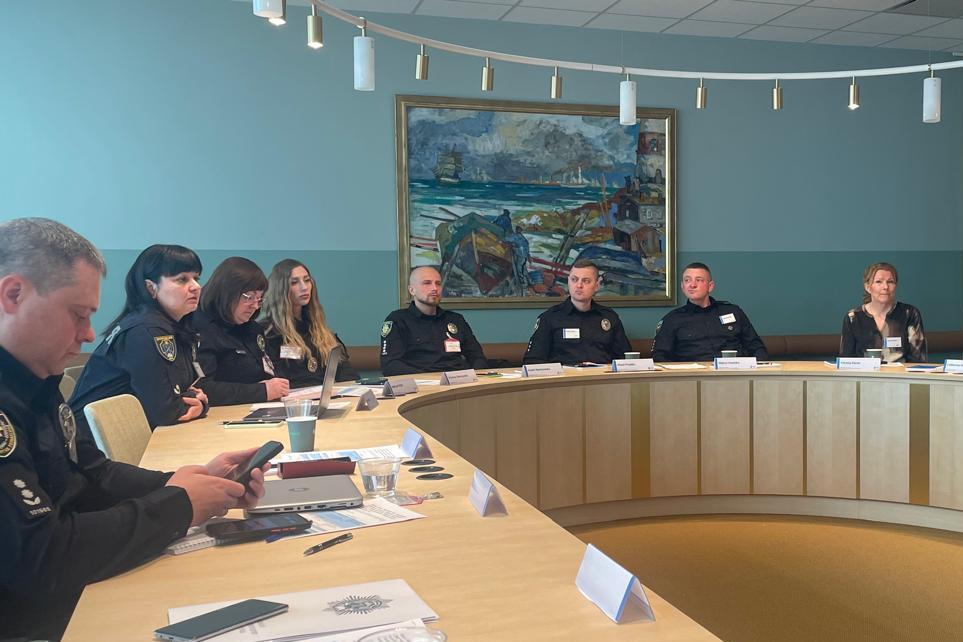
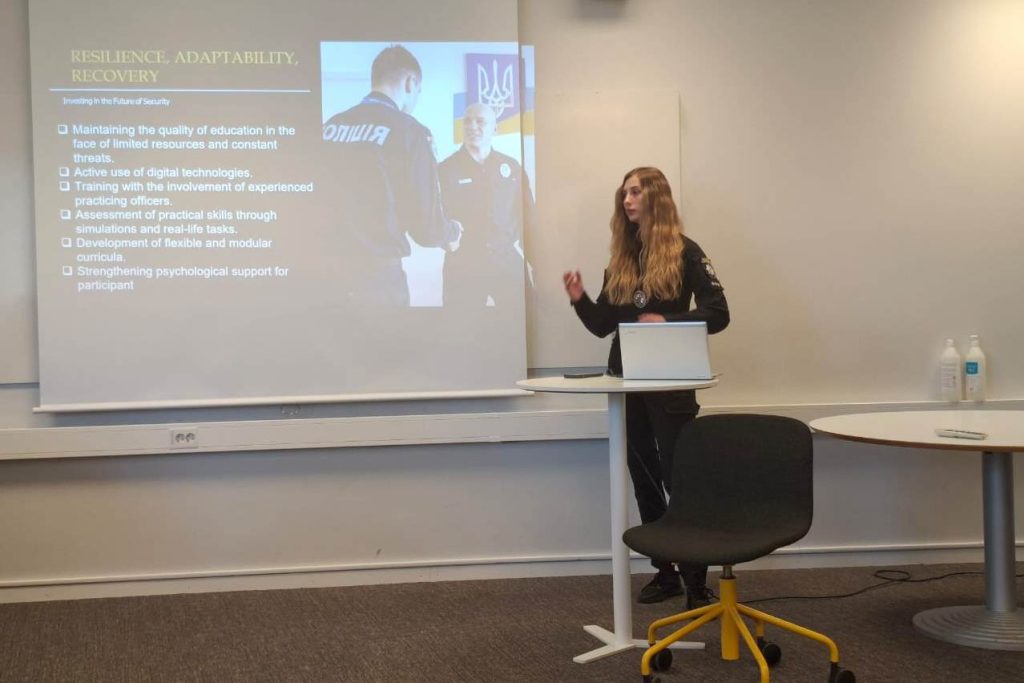
The exchange with experts from Södertörn University proved especially valuable, as they presented the Swedish model of police education focused on practical training, critical thinking, ethics, and work in a multicultural environment. A key component of the visit was a meeting with representatives of the National Police of Sweden, who demonstrated a systematic approach to conflict de-escalation through the creation of dialogue police — a structure that works proactively with communities to prevent offenses.
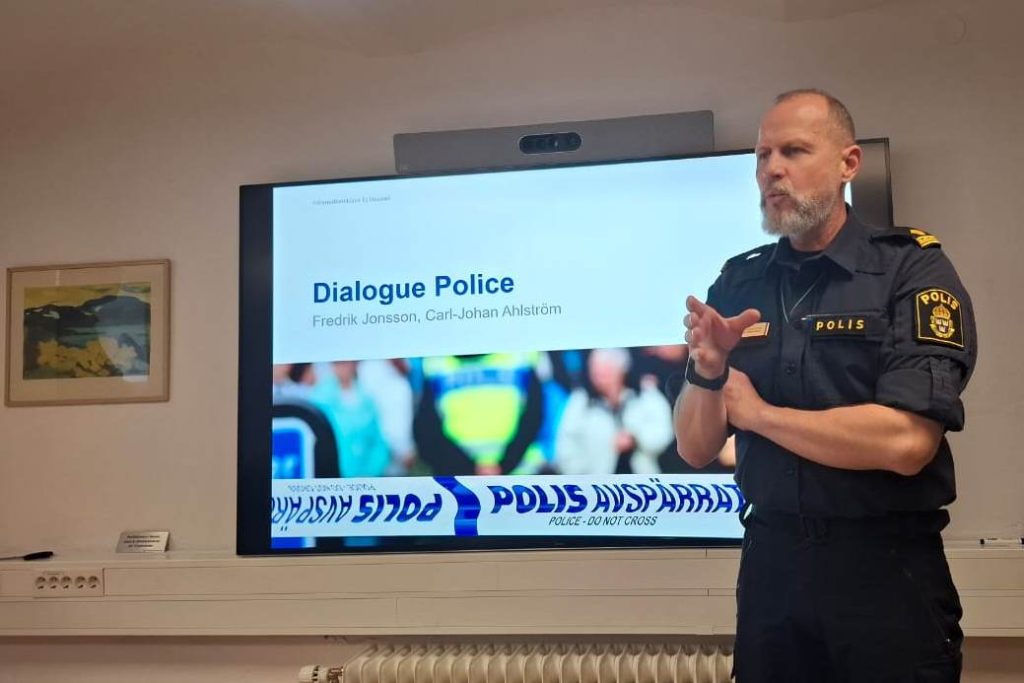
The DSUIA delegation included Head of the International Cooperation Office Tetiana Chumachenko; Head of the Research Laboratory of Preventive Activity and Sociological Research, PhD in Law, Associate Professor, Police Major Iryna Drok; Lecturer of the Department of Administrative Law and Process, Senior Lieutenant of Police Khrystyna Derevyanko; and Acting Head of the Department of Psychology, Sociology and Pedagogy of the Faculty for Training Criminal Police Units, PhD in Sociology, Associate Professor Nataliia Komykh.
The training was conducted in a tripartite format involving representatives of academic institutions, the National Police of Sweden, and the Ministry of Justice. Special attention was given to the Scandinavian model of dialogue policing, crisis response preparedness, gender-sensitive approaches, and police-community engagement.
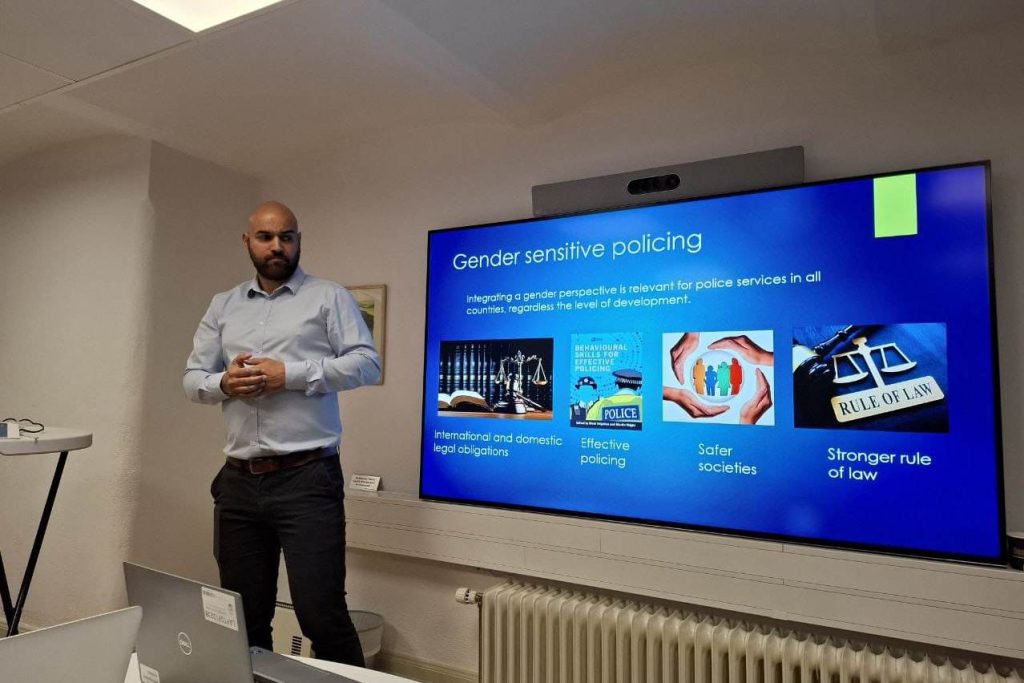
In addition, DSUIA representatives studied approaches to police education, modern methodologies for designing educational programs, and the challenges and opportunities of working with veterans in the context of community safety, as well as leading practices in public security.
The Swedish partners highly praised the contribution of their Ukrainian colleagues to the development of security education and offered recommendations for integrating European practices into police training. The knowledge and insights gained during the visit will form a solid foundation for updating the educational programs at DSUIA.
— 266

